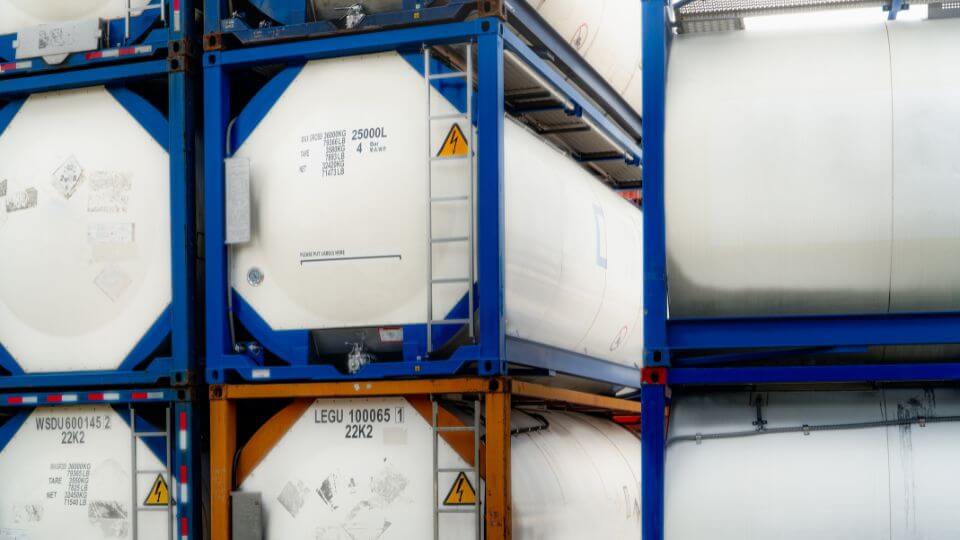

The Complete Guide to HAZMAT Table (HMT)
The Complete Guide to HAZMAT (Hazardous Materials) Table Home > Blog > The complete guide to the HAZMAT table Hazardous materials (HAZMAT) play a vital
Shippers can minimize their route and overall transportation costs by using multimodal and intermodal cargo transit. However, what is the distinction between the two? While working with a single company may be simpler, in many cases, total shipping costs might be better managed by using the specific expertise of numerous independent carriers. In these instances, logistics become more problematic as well.
As a result, to reap the full advantages of multimodal and intermodal cargo transportation systems, you must first grasp what they are, their terminology, and their operation. This is why this article exists, to get you started on the basics that you need to differentiate between them and choose the right type of 3PLs for your company.


Intermodal and multimodal transit both include transporting goods from the point of origin to the point of destination via multiple modes of transit. This may be accomplished through the truck, rail, barge, ships, or any combination thereof. Both may also indicate that each stage of the travel is served by a number of different operators. The distinction between the two, however, is in the nature of their contracts.
A single contract covers the whole route with multimodal transportation. One carrier assumes exclusive responsibility for the travel and guarantees that door-to-door delivery is accomplished, even if other couriers are engaged. Each leg of the route is covered by a specific and unique contract in intermodal transportation. This implies that many parties are accountable for the cargo’s safe delivery. When selecting a courier for your cargo, it is vital to grasp the distinctions and convey your requirements clearly to your suppliers to avoid any misconceptions.
Intermodal and multimodal transportation both benefit from the most efficient combination of several means of transport, which optimizes lead times, reduces inventory costs, and keeps freight prices under control. This combination leads to greater environmental sustainability by lowering the carbon footprint associated with transportation. We’ll now examine the distinction between intermodal and multimodal transport in further depth.
Multimodal transportation is regarded as the moving of goods from the point of origin to the point of destination by many modes of transport. However, in this case, each route is operated by a single carrier or a consortium of carriers under a singular contract or bill of lading. Also known as a dedicated carrier for each dedicated voyage, in simpler terms. The same transit carrier is liable for the shipment’s transportation across all legs and modes of travel.
This may be accomplished in a number of ways. You can work with a business that utilizes all of these means of conveyance. Another option is to engage an agent to create a single agreement for you. An agent would handle all of the back-end negotiations for you, leaving you with just one contract to manage. Furthermore, the agent would be in charge of arranging loading, unloading, and interruptions, if any.
Intermodal transportation is regarded as the transfer of goods from the point of origin to the point of destination using multiple modes of transport. The key distinction is that each channel is operated by a separate operator, and each leg is subject to a separate contract. This entails several carriers for the same travel route, with each stage handled separately by the respective employer.
Assume you need to transport a huge volume of cargo to another location. Both the source and destination are isolated and located on separate continents. This may need your product to be transported by lorry to a rail yard, then by railway to a seaport, and finally by boat to the next harbor abroad. It will then be transported by railway from the port to another train depot and finally via lorry from the railyard to its ultimate destination. When shipping through intermodal, each leg of the cargo will be handled by a distinct firm, and you will have several contracts, one with each carrier, for each leg of the trip.
Multimodal transportation:
Intermodal transportation:
A third-party logistics provider is a specialist in the field of logistics. In that last statement, the keyword is ‘world’, as in worldwide transportation and logistics. They are familiar with the ups and downs of items going through the worldwide supply chain. They are also familiar with international shipping restrictions, individual nations, and even specific areas inside those countries. They exist purely just for this reason, and they possess the expertise that many exporters may lack.
Furthermore, a third-party logistics organization has useful ties with a variety of carrier mode suppliers. They may negotiate shipping costs on their customers’ behalf and even build up specialized freight transportation solutions. They are available to assist you from the instant you decide on the means of transport all the way until it is delivered.
Also read: What To Look For When Choosing a 3PL Service Provider
Freight movements in modern times rely on continuous and precise monitoring of the whole operation. Whether you’re adhering to international shipping standards, protecting your insurance policy, or most crucially, informing your client or cargo receiver about the status of their shipment, employing modern technology to monitor and alert all stakeholders is critical. You must ensure that any third-party logistics provider you choose makes the best possible use of current technologies for intermodal and multimodal freight transportation.
If there were to be one universal reality regarding supply chains, it is that no one size fits all. This is particularly true when exporting internationally or using many forms of transportation simultaneously. A seasoned third-party logistics provider will understand which kind of freight transportation is ideal for your specific requirements.
If you’re planning to employ a physician to care for you, it’s crucial to verify their accreditation – correct? When it comes to international freight transit through various methods of travel, you are entrusting a third-party logistics provider to manage your freight. Hence, they should be well informed of the intricacies and complexities of the process and must have the expertise to serve you optimally.
Both intermodal and multimodal cargo transportation systems have their own set of benefits and drawbacks, with one key distinction: with multimodal, you sign a single contract, but with intermodal, you sign several contracts. These two means of conveyance significantly improve delivery times and freight prices. At Logos Logistics, we take pride in providing you with industry-leading freight brokerage, transportation, and automotive logistics services all under one roof.
Contact us for more details.


The Complete Guide to HAZMAT (Hazardous Materials) Table Home > Blog > The complete guide to the HAZMAT table Hazardous materials (HAZMAT) play a vital


10 Common Hazardous Materials (HAZMAT) in Logistics Home > Blog > 10 common hazardous materials (HAZMAT) in logistics In the complex landscape of logistics, ensuring


11 Different Types of Cargo Containers & Their Impact on Shipping Home > Blog > The 11 different types of cargo containers and their impact
© 2008-2024 Logos Logistics. All Rights Reserved, Logos Logistics Inc.